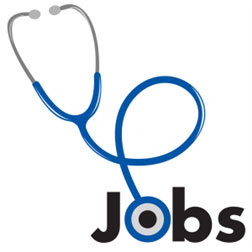How to Get a Job in Health Care or Biotechnology
Post Views 2Overview
Far from being a single industry with clearly defined producers and buyers, health care comprises a complex web of stakeholders: insurers, payers (public or private entities that pay for health-care costs) and regulators; hospitals, pharmaceutical firms and device makers; physicians and other health-care professionals; and consumers. Over the past two decades, the major trend has been the introduction of managed-care organizations (MCOs) and other mechanisms to rein in skyrocketing costs.
Recently, thanks to consumer and political pressure, MCOs and other payers have loosened the leash, allowing greater patient choice and physician autonomy. Costs are on the rise again, but now the emphasis is on controlling expenses and boosting quality, often by bringing new technologies and business strategies to bear on traditional health-care organizations.
Meanwhile, hundreds of biotechnology and device companies are vying to introduce the next billion-dollar drug or must-have device (or, in some cases, combinations of the two). While the drug development industry has a high failure rate most prospects never make it out of clinical trials dozens of drugs each year survive the grueling process of clinical testing and FDA approval. The effect of these new products on overall costs is mixed. In some cases, expensive new medicines and technologies raise costs, but in others they lower them by reducing the need for procedures or ongoing care.
Introducing these products can be a challenge worthy of the most aggressive marketer. Because of their tight cost environment, providers are skeptical of new technologies. New technology also requires additional training that may be difficult to schedule with heavy patient loads, and payers always the 500-pound gorilla in the room may resist shelling out more money.
See Healthcare Jobs at www.HealthcareCrossing.com
Trends in Healthcare
- Consolidation in major pharmaceutical companies. There is a tremendous amount of consolidation in the pharmaceutical industry occurring.
- Evidence-based medicine. Increasingly, physicians are being encouraged to follow standardized treatment protocols called guidelines and pathways, which are based on clinical studies and elite physician group’s opinion. Some docs chafe at cookbook medicine, but others embrace it for providing more consistent, high-quality care.
- Rising costs. Stung by experiences with managed care, consumers are increasingly opting for more flexible insurance plans, and many managed-care organizations are lowering barriers to health care in the face of market and political pressure allowing patients easier access to out-of-network providers, for instance.
- Aging population. The boomers twilight could be golden years for those in health-care businesses, or it could force another round of painful, radical changes.
- Outsourcing development. Large pharmaceutical firms will often forgo developing certain drugs if the market is not perceived as large enough. As a result, many smaller biotech companies are acquiring the rights to develop these products from the larger firms. Vaccine development is especially attractive to these small start-ups, since larger companies often balk at the immense amounts of R&D dollars and time commitment required.
- The uninsured. With employer coverage on the decline, the number of U.S. consumers buying their own medical policies is growing.
- Cultural sensitivity. As U.S. demographics change, health care organizations are paying more attention to diversity issues and cultural competence in caregivers.
Salary
Salary depends on many factors: the type of company or institution you join, the specific job, and other degrees or experience you bring to the table. Those from a middle-tier B-school with a health-care concentration who join provider or payer firms can expect around $50,000 to $60,000 to start, moving to $80,000 or more within a few years. Pharmaceutical and device companies offer starting salaries of $75,000 to $95,000.
Start-ups and earlier-stage biotechnology and device firms pay top executives $150,000 to $250,000 (usually on the lower end of the range), plus stock options and bonuses. “The opportunity to make an impact and increase your responsibility, salary, and overall compensation is much better in smaller, earlier-stage companies than in larger companies, but the risk is greater,” said one biotech executive.
You also have the option of working for the health-care practice of a consulting firm, or in an investment bank. These positions typically pay $80,000 to $110,000; higher salaries go to those who graduate from top schools or have additional relevant degrees. Venture capitalists are also looking for MBAs to help them perform due diligence on potential health-care–related investments. These jobs pay $125,000 to upwards of $200,000, often with bonuses.
A dual degree can give you an automatic salary boost. A Ph.D./MBA generally garners $100,000 and up; an M.D./MBA, about $125,000 to $150,000 and up at most organizations. While the starting salary for an M.D./MBA is higher than for those with just an MBA, it’s about the same as an average family practitioner’s salary. “An MBA does not initially give a great salary boost,” said one MBA physician, “but there is greater growth potential if you’re in a for-profit arm [of the health care sector].”
See Healthcare Jobs at www.HealthcareCrossing.com
Hours
Working hours will depend on your specific job and the particular industry segment in which you work. If you work in finance at a hospital or in marketing at a pharmaceutical firm, you might have standard business hours. For those in consulting, a 55- to 75-hour week is the norm (some firms are more committed to work-life balance than others). Those who work with venture capitalists or in investment banks also work 50+ hours a week. Naturally, at a development-stage biotechnology or device firm, you’ll have all the excitement—and long hours—expected at a start-up.
Travel
The amount of travel varies tremendously from job to job. A consultant may spend 15 or more days on the road each month, while a hospital CFO travels only rarely. Those in health-care venture capital or business development might spend up to 30 percent of their time traveling.
Biotechnology executives may be on the road one to three times a month to meet with corporate partners or potential investors, or to make presentations at investment conferences. During a “road show” to raise money, more travel may be required.
If a job calls for keeping up with the latest advances in diagnosis and therapy, attendance at medical conferences is essential.
Office Culture
Health-care culture tends to be conservative, particularly at the corporate level. Business attire is the rule, although many offices have adopted casual-Friday policies. At a start-up, the dress code is more casual. Consultants usually dress formally at the client site or for client meetings, but business casual is the rule on Fridays at the home office.
See: Organization Culture Matters Most
The Crowd
Everyone working in health care has to learn how doctors think. Physicians are the gatekeepers of health care and interface with virtually every other segment of the industry. Their decisions determine whether a new drug is a billion-dollar-a-year blockbuster or one of several $100-million-a-year also rans. Their willingness to comply determines whether a cost-savings guideline will be fully implemented or largely ignored. The bottom line is that you must achieve physician buy-in to effect change in health care.
Because health care is such a large industry—one-seventh of the U.S. economy—it is diverse. Health-care workplaces, whether at the corporate or delivery level, bring together smart people from many backgrounds, although many of the traditional gender and race divisions remain: You won’t meet too many male chief nurses or managers of home-care operations, for example.
See Healthcare Jobs at www.HealthcareCrossing.com
Getting In
If you have an MBA along with an M.D., Ph.D., RN, MPH or other science/health-care degree, the job search is often just a matter of picking the opportunity you want. Unless you are interested in consulting, campus recruiting sessions will probably be less useful than handing your CV or resumé to top recruiters and targeting journals that advertise the kinds of positions you’re interested in.
If you are one of the slackers out there with only one measly graduate degree, the advantage goes to B-school grads with a health-care background or those who have pursued a health-care concentration within their MBA program. Health-care firms actively recruit at schools with such concentrations.
Your best bet if you have an MBA without such a concentration is to seek a job in the health-care practice of a consulting firm or investment bank, or to pursue a marketing or finance position within a large pharmaceutical or device company. These companies have the infrastructure in place to help you build health-care expertise as you advance in your career.
Development-stage biotechnology and device firms usually seek candidates with a life-science background or relevant experience, as these companies lack the resources for extensive training and need people who can hit the ground running.
If you are interested in working at a small biotech firm, delve into company fundamentals to make sure you know what you’re getting into. “Management, science, and execution are key. It’s absolutely critical to understand who is running the company, and how it’s being run. Understand the business model and the competitive landscape—does it make sense?” said one biotech executive. “You need to really try to understand the science behind the company, and make sure it’s good, credible science. Be wary of things that sound too good or perfect!”
Venture capital firms also look for experience. They often tap Ph.D.s and M.D.s but also hire MBAs, particularly those with experience evaluating business plans and performing due diligence.
Be sure to do your homework before the interview. If you’re interviewing at a hospital, for example, you should be prepared to talk about such hot-button issues as the personnel shortage and the drive to reduce medical mistakes. At a pharmaceutical company, you’ll want to be comfortable chatting about the impact of biotechnology and direct-to-consumer advertising.
In addition to the organization’s own Web site, check out industry or medical association sites. You might even go to a medical school library and browse through a year’s worth of a relevant journal to get a feel for what insiders are talking about over lunch. Schedule as many informational interviews as you can with people in the field.
If the job involves practice management, the employer will respond well to an entrepreneurial bent, as well as evidence that you will be able to deal with payers and HR issues.
Questions you might ask during the interview:
What other positions are there for a person with an MBA within this organization?
What are the opportunities for advancement?
What will I need to learn to become fully effective in this job?
How flat is your operating structure? To whom am I directly and indirectly accountable?
With whom will I be working most closely—physicians, nurses, insurers, researchers, or other business professionals?
How would you characterize the relationship between the business side of your organization and the health-care professionals whom it employs or with whom it interacts?
See the following articles for more information:
- 21 Major Job Interview Mistakes to Avoid at All Costs
- The Five Musts of Interviewing
- How to Answer the Tell Me About Yourself Interview Question
- The Best Way to Prepare for a Job Search and Interviews
Moving Up
Health care might have a somewhat staid reputation among business school students, but organizations are often relatively flat, employ few MBAs, and provide ample opportunity to move up and command a hefty salary. Chances are you won’t be one of dozens of new recruIt’s; you may acquire substantial responsibility early on, often interfacing directly with the CEO, CFO and/or vice presidents on a daily or weekly basis.
Examples:
A recent B-school graduate who works in the venture capital division of a large hospital company reports an opportunity to join one of the funded companies as the No. 2 executive.
At a national home health-care firm, an MBA can enter as a branch director and be only four steps from a senior vice presidency.
An M.D./MBA without previous business experience joined a device company as a vice president.
What It Takes
An interest in how business and health care intersect, particularly the relationships between providers and payers, is key. You will need to master the art of communicating with physicians and other health-care professionals or scientists, and perhaps with investors if you land at a start-up. If you move into business development or marketing, a knack for understanding statistics and scientific research is important. You may be called upon to evaluate the prospects of a new technology, or to develop strategies for selling that technology to physicians. While the organization will provide scientific and medical support, your ability to understand and communicate the fundamentals of your business is essential to success.
Typical Day
A typical day varies according to the nature of the job. As in any other corporate environment, you’ll spend time on the phone and answering e-mail, as well as writing reports and meeting with other executives to plan strategy. In a practice management setting, you may be called on to do more day-to-day troubleshooting—for example, coming up with a plan when three nurses call in sick.
A health-care consultant’s day often begins at 7 or 7:30 a.m. and runs 12 hours with a desk side lunch. It might include meetings with hospital officials (the CEO, CFO, medical director, chief nurse, etc.), development presentations and spreadsheets, research into solutions that are available to address the organization’s problems, a few calls to schedule meetings with other clients, and a late-evening dinner with the consulting team.
For a health-care venture capitalist, the day starts with responding to e-mails and phone messages (and there are usually quite a few, since so many companies seek funding). Conference calls and meetings, research (on the Web or by calling investment bankers and other VCs), or writing investment memos are par for the course.
A biotech executive might spend the day fielding calls from existing and potential investors, analyzing the latest scientific reports and requests for new equipment, and working on a presentation for an upcoming investors’ conference.
Buzzwords
Health-care providers
Reimbursement
HCFA (Health Care Financing Administration)
Evidence-based medicine
Guidelines
Pathways
Length of stay
Quality care
Medical mistakes
Minimally invasive
Hospitalist (a new medical specialty)
Legacy system
Utilization management
Disease management
HIPAA (Health Insurance Portability and Accountability Act)
Payers
Biotech and pharmaceutical
Genomics
Proteomics
Pharmacogenomics
Antibodies
High-throughput screening
Single nucleotide polymorphisms
Milestones
Microfluidics
DNA microarrays
Misconceptions
Myth: A health-care degree is a must.
Reality: You don’t have to hold a health-care degree to advance into the top tier of management at most health-care organizations (though, obviously, that helps). MBAs are often just a few steps away from a senior-level position.
Myth: Health-care enterprises are sleepy and staid.
Reality: Compared to some investment banks and consulting firms, health-care enterprises can seem slow. But change is accelerating with the advent of new drugs and devices, and substantial growth is all but ensured in the coming decades as the U.S. population ages.
Pros & Cons
Pros
-Stable (with the exception of start-ups, although even volatile biotech start-ups rarely go out of business)
-High growth potential, as boomers age and new technologies enter the market
-Relatively recession-proof
-Ongoing discoveries and new studies keep the field interesting
Cons
-Other stakeholders may have a large role in decision-making
-Heavily regulated
-Difficult to effect change quickly
See Healthcare Jobs at www.HealthcareCrossing.com
Great Perks
A big perk for some is simply being on the cutting edge of an exploding field of human knowledge. More practically, you’ll learn about managing your own health care and that of your family, including how to interact with doctors and insurers effectively.
See Healthcare Jobs at www.HealthcareCrossing.com
How to Get a Job in Health Care or Biotechnology by Harrison Barnes



 Jobs in Advertising – Top 10 Ways to Succeed in Advertising Jobs
Jobs in Advertising – Top 10 Ways to Succeed in Advertising Jobs  Professional Guidance with EmploymentCrossing Premier
Professional Guidance with EmploymentCrossing Premier